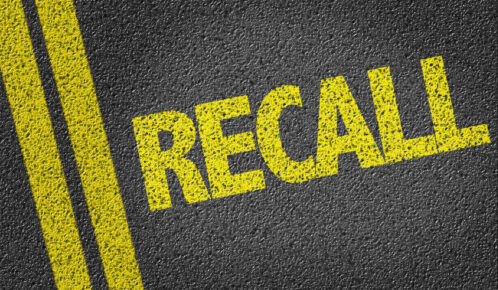A personal injury claim is a judicial proceeding instigated by a claimant who seeks compensation for physical, emotional, and financial damages caused by deliberate, careless, or negligent wrongdoings of others. Knowing what constitutes a personal injury claim can help you take the right steps to safeguard your rights and hold the liable party financially responsible for your injuries and losses.
Table of Contents

You need to prove that the wrongful actions of another party resulted in your medical expenses, loss of earnings, pain and suffering, and other damages for your injury claim to be successful. To achieve that, you must table irrefutable evidence showing how the liable party’s breach of a legal duty of care harmed you. Your evidence and arguments must also show that you are entitled to financial recovery for your losses.
What Constitutes a Personal Injury Claim?
A personal injury claim refers to a legal action you can file if you or a loved one has sustained an injury in an accident caused by the deliberate, reckless, or negligent actions of another person. The liable party’s insurance provider is usually responsible for covering medical expenses, lost income, pain and suffering, and other consequences you or a loved one suffered and might continue to suffer. A personal injury lawsuit can arise from automobile accidents, defective products, slips and falls, medical malpractice, workplace accidents, and pedestrian accidents.
What Laws Govern Personal Injury Cases?
The fundamentals of personal injury laws often overlap with the concepts applied to civil lawsuits and tort law. Regardless of the applied laws, however, the compensation is proportional to the severity of your injuries. Here are the types of laws cited in personal injury cases:
Negligence laws
Negligence is the most consequential legal doctrine used to determine these cases. Everyone has a moral and legal duty to act responsibly or in a way that does not endanger the welfare of others. Negligent actions place significant risks to others and often result in harm or injuries.
This doctrine acknowledges that some actions, although reckless, are completely unavoidable. The overarching agenda is to prove that the defendant acted unreasonably and irresponsibly. In other words, the at-fault party failed to act as expected by societal standards and is, therefore, guilty of negligence.
Examples of careless acts are drunk drivers causing accidents, failing to place a leash on a dog that bites a passerby, or a doctor prescribing the wrong medications. In these examples, the defendant’s negligence can cause injuries and harm to the plaintiff.
Tort laws
A tort is an infringement or wrongful act that exposes the at-fault party to civil liability. Torts can be intentional or a result of negligence. Tort laws determine who is to blame and how much they should pay as compensation to the injured parties. An infringement on these laws provides valid grounds for raising personal injury claims. Torts fall into three categories, including:
Intentional Torts
Intentional torts arise when a person’s deliberate actions cause damage or injuries to another person. Common intentional acts that cause harm to others include false imprisonment, battery, deceit, fraud, trespass to chattels or lands, deliberate infliction of distress, and assault.
This category of torts covers cases where a person does not act with reasonable care and causes an injury to another person. A duty of care must exist between the involved parties in these cases. The liable party must breach the duty to act with care. That breach must lead to injury and damages.
Strict Liability Doctrine
Negligence Torts
Claims raised based on strict liability legal theory argue that the defendant is liable for harmful outcomes, regardless of his or her mental state or intent when the action occurred. Here, liability gets apportioned to the defendant without proving negligence. A classic example is holding a manufacturer responsible for defective products. That manufacturer is still held accountable, even though the manufacturer was not negligent. Also, the manufacturer is still liable despite not intending to harm the consumers.
How Do I Prove Negligence in a Personal Injury Case?
You must demonstrate four legal elements to prove negligence in a personal injury case. These elements include:
The Defendant Owed You a Legal Duty of Care
The court checks if the at-fault party owed you a duty of care. A legal duty exists between a service provider and his or her clients, for instance, a doctor and a patient. Drivers also owe other drivers and road users a duty to drive with reasonable care and caution.
The Defendant Breached or Failed to Honor that Legal Duty
Once you have demonstrated that the defendant had a duty to act reasonably toward you, the court looks at whether the defendant breached that responsibility. A breach occurs if the wrongdoer’s negligent actions, or inaction, led to an accident or event that harmed you. The court weighs the defendant’s actions or inaction against what is expected of a prudent and reasonable person in similar situations.
The Breach or Failure Directly Resulted in Your Injury
This element requires you to prove that the negligent act did indeed cause the reported injuries. For instance, the defendant was driving while texting, and that caused the accident and injuries.
Significant Damages and Losses Stemmed from the Injury
The fourth and final element is to prove that the damages sustained came from the accident or defendant’s actions. You need evidence of your injuries and losses to qualify for compensation. Medical bill receipts, pay stubs, and other financial documents can help prove this fourth element of negligence.
What Types of Damages Can I Recover
The types of damages you can recover in a successful personal injury claim fall into two primary categories: compensatory damages and punitive damages. Compensatory damages cover tangible and intangible losses arising from your injuries. Punitive damages, on the other hand, punish the defendant for willful misconduct.
Compensatory Damages
- Medical Bills: Successful personal injury claims result in compensation to cover medical bills arising from the injury. Medical bills include cost for physician visits, prescription medications, assistive medical equipment and devices, surgery, and transportation when seeking medical care. The final settlement or court award might also include future medical costs.
- Lost wages or earnings: You can also recover your past, present, and future wages if your injuries keep you from working. The value of these damages depends on the length of time you will stay away from work to seek treatment and recover from your injuries.
- Property Damage: You are entitled to recover the cost of replacing or repairing any property that sustained damage in the accident.
- Pain and Suffering: This compensatory damage accounts for the largest share of your injury settlement. It covers physical pain and suffering as well as mental distress you have experienced and will continue to experience because of the accident.
- Wrongful Death: You could be eligible to recover wrongful death damages if you lost a loved one due to the negligent actions of another person or entity. A successful wrongful death suit allows you to recover medical bills that accrued before your loved one’s death and funeral and burial costs. You could also recover compensation for loss of companionship, inheritance, and financial support.
Punitive Damages
These damages are not intended to compensate you for the resulting losses of an accident. Instead, they are intended to punish the liable party for gross negligence or acting with malice. They also serve as a warning to others that might be considering engaging in similar wrongful conduct.
How Long Do I Have to File a Personal Injury Claim?
You must begin a personal injury claim within a specific timeframe to protect your right to compensation. This timeframe is known as a statute of limitations. The timer for this timeframe usually begins counting from the date of the accident or when the plaintiff discovers the injury.
This deadline is imposed by state law and usually varies from state to state. For instance, the deadline for commencing personal injury lawsuits is two years in Illinois.
What Is the Cost of Hiring a Personal Injury Lawyer?
No two personal injury cases are the same. So, the cost of your injury lawyer will depend on the unique facts of your case. Also, different personal injury attorneys have varying rates.
Fortunately, many Illinois personal injury lawyers provide their legal services on a contingency fee basis. This type of arrangement allows you to receive legal services without paying upfront. Instead, your lawyer takes a specific percentage of your settlement or court-awarded compensation as legal fees. Other expenses for prosecuting your case may also get deducted from the final compensation or settlement.
Under a contingency fee arrangement, your lawyer does not get paid if your case is unsuccessful. The best way to learn more about the fee structure of your would-be lawyer is to request an initial consultation. Most injury lawyers provide initial consultations at no cost.
But when should you hire a personal injury lawyer? Generally, you should hire a lawyer after sustaining an injury due to another person’s actions (or inaction). Your lawyer will carefully go through the details of your case to determine if you have a viable personal injury claim.
How Are Personal Injury Claims Resolved?
Personal injury claims get resolved through an out-of-court settlement or a formal lawsuit. In most cases, the injured victim gets lucky, and the case is an open-and-shut affair. That occurs when the defendant has sufficient insurance coverage to compensate for his or her wrongdoings. Quick resolution can also happen when there is a mutual willingness to resolve the matter without further complications.
At times, however, the defendant’s insurance may contest the claim. Also, the defendant might have limited insurance coverage. In such instances, the case goes before a judge and jury to determine the compensatory and punitive damages due to the plaintiff and the wrongdoer, respectively.
Out-of-Court Settlements
In an informal or out-of-court settlement scenario, the dispute does not drag on to the courts. Instead, the plaintiff and defendant, through their lawyers, reach an agreement to resolve the matter amicably without involving the courts. This informal settlement option is popular, especially with less severe personal injury cases. To strike a consensus, the attorneys representing both sides enter negotiations to determine a fair settlement amount.
Formal Lawsuits
With the formal lawsuit route, however, due diligence is observed as the case gets heard by a court of law. Both the plaintiff and defendant get to present their statements and arguments before the judge. In most cases, the insurance company stands in place of the at-fault defendants. The Judge or jury examines evidence and arguments from both sides and determines whether the defendant is at fault for the accident and resulting injury. If so, the judge or jury then awards compensation to the injured party.
Should You Accept a Settlement From an Insurance Company Without a Lawyer’s Input?
Insurance companies can be deceitful when dealing with injured claimants. These companies rush to offer unfair settlements to the injured parties. The insurers are only out to make profits. So, the less these companies pay, the more their investors make. When you accept the initial settlement deal, you waive the right to pursue legal action in the future, especially if the payout received is insufficient to cover the rising losses later.
At the same time, the pain and suffering that comes with the sustained injuries can make it hard for victims to turn down the initial settlement offer by insurers. After all, the victim needs the payout to settle medical bills. The reality, however, is that taking the initial offering may be a big mistake. Be sure to talk to your injury lawyer before accepting a settlement offer from an insurance company.
Leave nothing to chance with your personal injury case. Hire a Schaumberg personal injury attorney with proven negotiation and litigation skills to represent your interests when negotiating with insurance adjusters. Your attorney can build a watertight case that convinces the jury and judges to render an expedited and just ruling if the defendant’s insurance is reluctant to offer a fair settlement.



